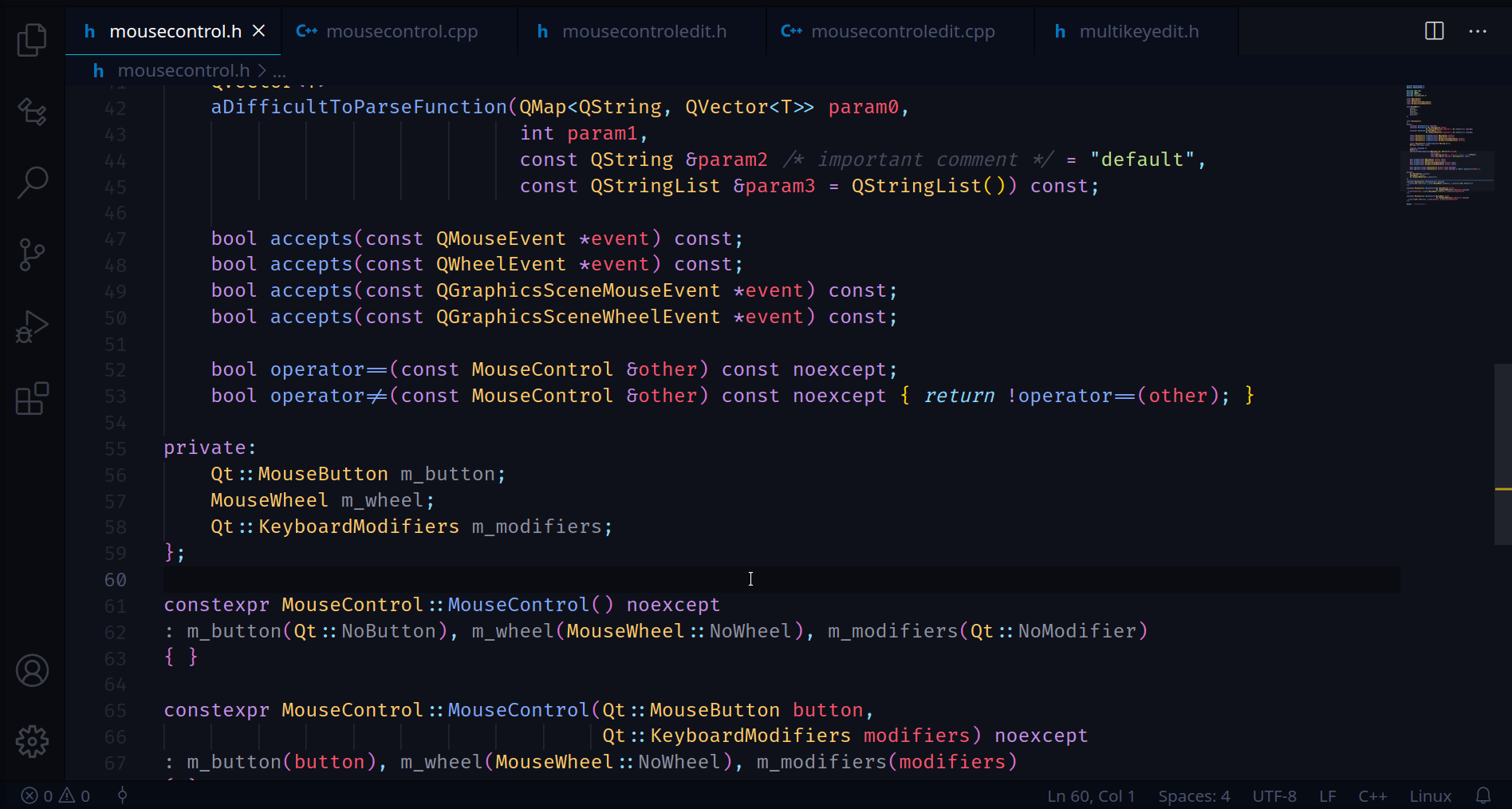Generate Getters and Setters
Selecting the name of a member variable will suggest the following code-actions 💡.
The Generate Getter and Setter, Generate Getter, and Generate Setter commands will generate accessor functions for a member variable. C-mantic will look for common private member naming schemes in order to generate appropriate function names: If a member variable name begins and/or ends with underscore(s), or if it begins with m_ or s_, these characters will be removed to create the member function names. The Case Style setting controls whether names are generated in snake_case, camelCase, or PascalCase.

Additionally, for non-primitive, non-pointer data types, setters will be generated with a const-reference (const &) parameter type. If you would like C-mantic to resolve typedef’s, type-alias’s, and enum’s, enable Cpp: Resolve Types in the settings (This is disabled by default as it may impact the performance of generating setters).
The Accessor: Getter Definition Location and Accessor: Setter Definition Location settings control where the definitions of these member functions are placed (either inline, below class body, or in matching source file).